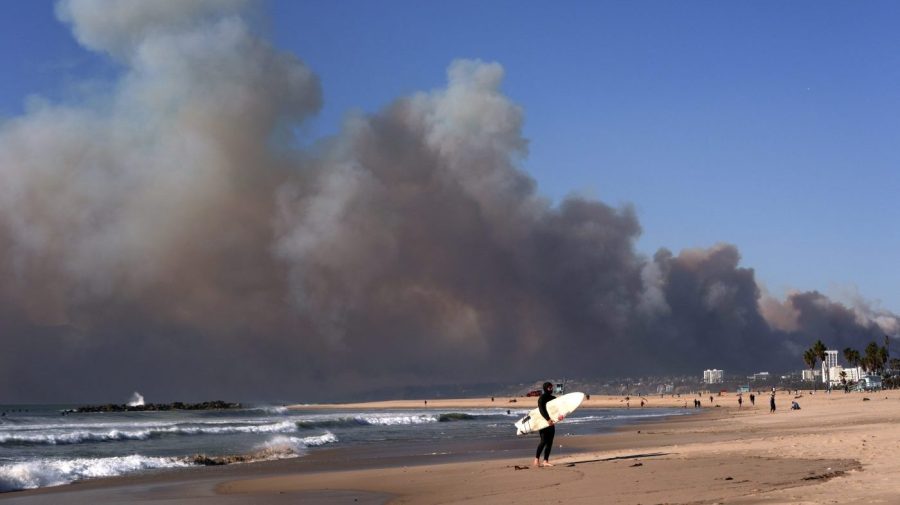
(NewsNation) — Fires in the Los Angeles area have stretched across tens of thousands of acres, spreading smoke and ash throughout Southern California.
Breathing in smoke, which contains tiny particles called PM2.5, can spread chemicals, dust, soot and metals throughout the human body.
In short doses, smoke exposure has been linked to premature death, hospital admissions, bronchitis, asthma attacks and other respiratory and cardiac problems, the California Air Resources Board said.
And long-term exposure can cause another host of issues, Dr. Lipi Roy tells NewsNation.
Wildfire smoke’s long-term health effects
Roy warned that long-term exposure can lead to dementia, Alzheimer’s, Parkinson’s, diabetes and lung cancer, among other diseases. The World Health Organization associates 7 million premature deaths annually to indoor and outdoor air pollution.
The Environmental Protection Agency says there aren’t enough studies to accurately link long-term wildfire smoke exposure over multiple seasons to specific diseases, though short-term and cumulative short-term exposure can cause myriad problems.
Smoke exposure can especially pose a problem when the smoke comes from urban areas with more than just vegetation to burn, Roy said.
“Houses have paint, rubber, metal, steel. When those burn, they release really toxic fumes and ash,” the doctor explained.
Particle pollution also triggers asthma attacks, heart attacks and strokes and can cause death, according to the American Lung Association.
People at the highest risk — children, the elderly, those with respiratory or heart conditions and people with compromised immune systems — may experience more severe effects, such as difficulty breathing, wheezing, coughing, fatigue and/or chest pain.
How to protect yourself from wildfire smoke
The best way to protect yourself from wildfire smoke is to get far away from the source. If movement isn’t an option, it’s best to stay indoors and limit any outdoor activity.
Inside, make sure your doors and windows are tightly closed and sealed.
An air filter or HVAC system with air filters can help maintain healthy indoor air quality, and portable air purifiers can help, as well, according to the Centers for Disease Control and Prevention.
It’s important to run your fan the entire time; otherwise, the air will only be filtered when cooling. If your system operates using a fresh air intake, close it.
If you have to stay outside, wearing an N95 respirator mask and taking frequent breaks is crucial for your well-being.
NewsNation’s Safia Samee Ali, Ashley Soriano and Damita Menezes contributed to this report
NewsNation is owned by Nexstar Media Group, which also owns The Hill.












